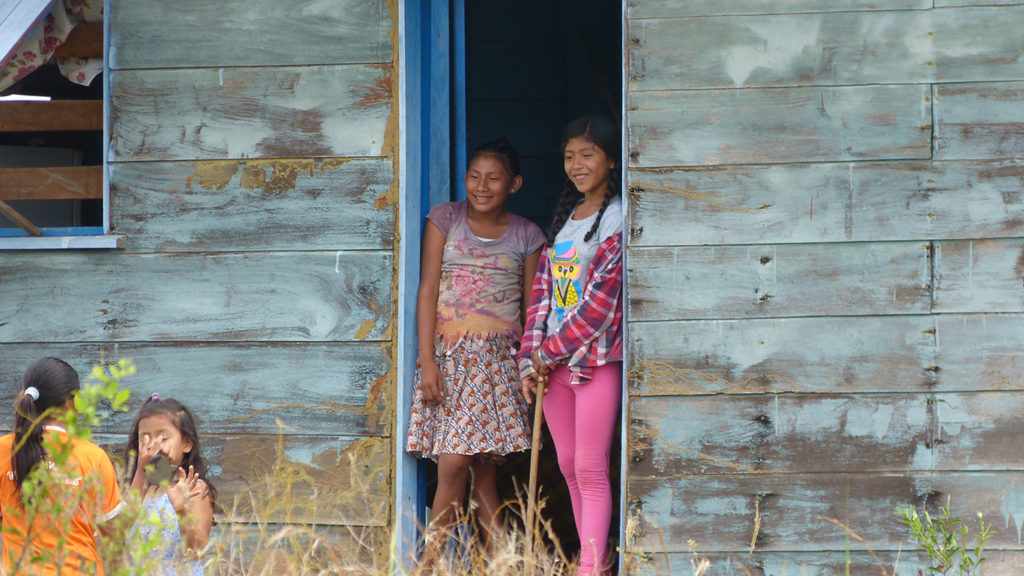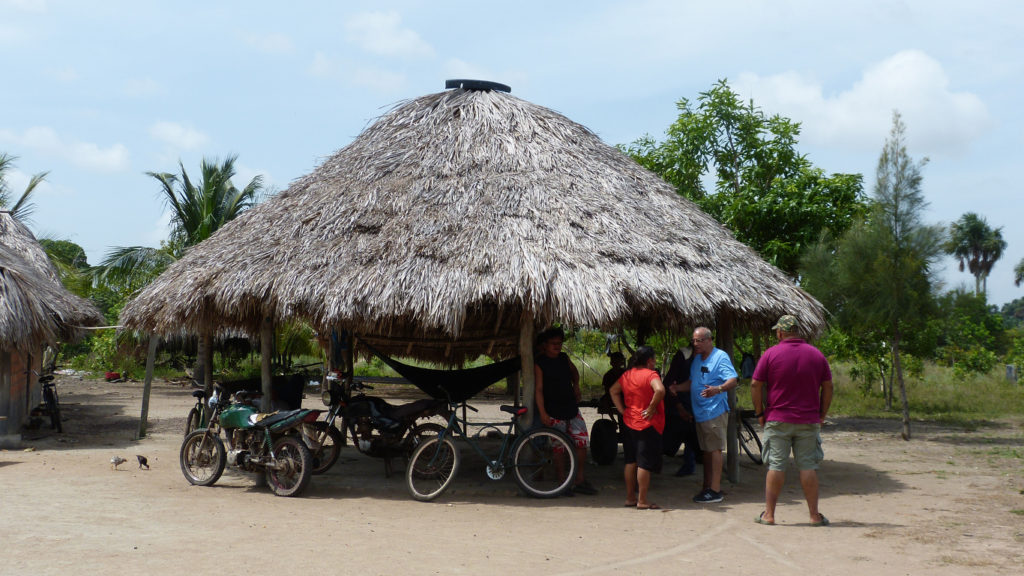By Dr Kumar Mahabir and Jai Sears
When rain falls, the laterite roads to the Amerindian settlements in the Rupununi Savannah in Guyana run in a mess and get flooded in places. Some parts become impassable. In the circumstances, bicycles and motorbikes are common for men and women commuters. No significant road repairs have been done since the David Granger-led Partnership for National Unity + Alliance For Change (APNU+AFC) coalition Government won the elections in 2015. The laterite roads have not been maintained and have gone bad. Foxes, deer, iguanas and snakes can be seen crossing the tracks and trails.

The Amerindian spokesmen said that the former Bharrat Jagdeo-led People’s Progressive Party Civic (PPP/C) Government had shared State resources to all stakeholders without discrimination or party loyalty. A female spokesperson in Kuru said: “The previous government was most helpful. That Government did not look mainly at Georgetown, the city; they focused all over. The reached all over, even to the poorest. They gave us transportation, tractors, electricity, solar lights in every home … at least nuh, we appreciate that.”
The villagers claimed that under the former PPP/C Government, they were given tractors (with regular supplies of fuel) to cultivate their lands, and buses to transport children to school. Although education is free, many children in Kuru and elsewhere cannot write the high school exams (CXC) because they have to pay exam fees which they cannot afford. They need subsidised houses and a home for the aged. Under Granger, these benefits and resources, like the Community Support Office (CSO), have dwindled and even ceased.
Fence needed to protect the buildings
One Amerindian leader said, “It was sad when the PPP/C lost the elections in 2015. It was sad for the young people. They came to me a few years later and said, “Aunty, with the previous government, we had a lot of money to go shopping. The youths from various clusters came together to organise community events. … With no Government assistance, the youths have left for Georgetown [the capital] and Brazil for jobs. But they would return one day. As the old people say, when the grey hairs begin to show, it is a reminder to go back home. It will be like that.”
In the Amerindian village of Nappi, the Amerindian informants said that the Granger Government has accused the Jagdeo government of leaving the treasury bankrupt. If that were so, how come the Partnership for National Unity + Alliance For Change (APNU+AFC) coalition Government has given its Cabinet Ministers a 50 percent increase in salary? What did Granger do with the money that Jagdeo had left?, they asked.

Granger has wasted millions of taxpayers’ dollars in the High Court, the Court of Appeal and the Caribbean Court of Justice (CCJ) in appealing the no-confidence motion (NCM) which APNU+AFC has lost in Parliament in December 2018. They also said that Granger misused taxpayers’ money by illegally revising the voters’ registration list which was unnecessary.
The villagers of Nappi said they need money to build a fence around the public buildings against marauding cows and sheep as well as reckless motor-bikers. The leader said that most of Nappi residents have been seen wearing the symbolic red T-shirts in support of the PPP/C party. “They say that red is better than the green” [the symbol of APNU+AFC party].
No oil pipe dreams
The indigenous leaders said that the APNU+AFC coalition is both an illegal and illegitimate Government in power because it refused to demit office and call fresh elections since December 2018. It has also illegally and unilaterally appointed a Chairman of the Guyana Elections Commission (GECOM). They believe that the March 2nd 2020 general elections in Guyana will not be free and fair under Granger. There are questions about the credibility of the names on the voters’ registration list.
The indigenous people do not live in hope that the discovery of oil in Guyana would bring them a better life. They said that the Granger Government has already given away the oil for a pittance of two percent (2%) royalty from Exxon and 1% from Tullow. In the rest of the world, the royalty rate was generally about 12.5%, but it has recently increased between 18% and 25%. They have heard that Exxon is a capitalistic, corrupt conglomerate that is expected to drain the economy and suck Guyana’s natural resources dry. They suspect that ExxonMobil will help Granger rig the December 2nd elections.

is a full-time anthropologist at the University of Guyana (UG) and Fellow of The Eccles Centre for American Studies, British Library (2022-23). He is a former Assistant Professor at the University of Trinidad and Tobago (UTT). He obtained his Ph.D. in Anthropology from the University of Florida (UF). As a doctoral student, he won a Florida Caribbean Institute Award, an A. Curtis Wilgus Grant, and an Organization of American States (OAS) Fellowship.
Mahabir received a National Award (Hummingbird Silver Medal) for his contribution to education in his country in 2011. He was among 50 recipients who received a Distinguished Alumni Award from the UWI Alumni Association.
Mahabir is the author of 12 books to date.
